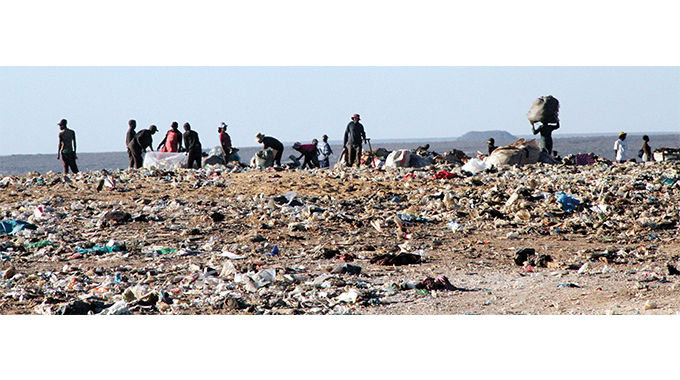Pharmaceutical sector targets 18pc market share
ZIMBABWE’S pharmaceutical industry is looking to increase the market share of locally manufactured medicines and drugs to 30 percent by next year.
In 2023 the sector managed to grow its market share to 18 percent from 12 percent.
The target is in line with targets under National Development Strategy (NDS 1), which seeks to increase the market share for locally manufactured pharmaceutical products from 12 percent in 2020.
Launched in 2021, the Pharmaceutical Manufacturing Strategy in Zimbabwe 2021 -2025 endeavours to curb challenges weighing on the industry by increasing the production of essential drugs.
The blueprint also intends to grow the sector’s revenue to US$150 million per annum from about US$50 million.
The sector also registered a 36 percent revenue growth in 2023 to US$49,8 million.
Zimbabwe’s pharmaceutical industry’s scope has been growing lately, with the sector’s manufacturing capacity utilisation growing to 47,5 percent last year.
Recently three Zimbabwean companies opened new manufacturing plants.
This comes after the Medicines Control Authority Zimbabwe’s (MCAZ) recent achievement of Maturity Level 3 recognition from the World Health Organisation.
Maturity Level 3 recognises Zimbabwe’s position as a verified manufacturer of medicines.
The status underscores Zimbabwe’s commitment to upholding the highest standards in public health protection through rigorous regulatory oversight.
Only six African countries have achieved this status and it is a significant stride because it speaks to the capacity that the country has.
As it stands, Zimbabwean medicines are being exported to eight countries.
However, competition in the local market remains high given the influx of imported medicines and the Government’s continued procurement of medicine outside Zimbabwe.
Pharmaceuticals Manufacturers Association of Zimbabwe (PMAZ) representative Ms Tanaka Mashayamombe told a Ministry of Industry and Commerce Quarterly Thematic Working Group workshop that there was need for closer collaboration between the industry and Government to curb the influx of imported drugs and increase the procurement of locally produced medicines and drugs.
She said increased local procurement, especially by the Government, would go a long way in driving the growth of Zimbabwe’s pharmaceutical sector.
Ms Mashayamombe added that the Government used to procure 80 percent of drugs and medicines locally when the country only had six manufacturing companies.
The local producers have since grown to 11, implying more domestic production capacity
“In 2023, we closed the year at 18 percent local market share for locally manufactured pharmaceuticals from the prior 12 percent, but the 2024 market share is not doing well.
“We have seen a decrease due to an increased influx of imported medicines. This decreases the market share for locally manufactured products.
“We have also noted that the Government is importing medicines that are manufactured locally.
“Government expenditure in pharmaceuticals is the bedrock of (sustainable) pharmaceutical manufacturing in any country.
“World over, the pharmaceutical industry is heavily supported through public expenditure, Government is the biggest buyer of medicines It allows us to access the full market of Zimbabwe, including financing from banks, and regional banks, because we would have a ready market which is not influenced by so much competition.”
Data from the pharmaceutical sector shows that Zimbabwe’s average annual national demand for pharmaceutical products is worth around US$272 million but the larger chunk is being taken up by imported medicines.
Ms Mashayamombe proposed import restrictions on medicines available within the country saying such a policy existed in countries like Algeria, Morocco, Egypt Nigeria, and Botswana.
The policy has promoted the growth of the pharmaceutical industries in these countries.
She also highlighted the need for public awareness of the nature of drugs to consume given the increased imports of counterfeit medicines and drugs in the market.
“There has been a steady rise in the influx of unregistered medicines to our borders, counterfeit medicines are a problem because they are there on our streets and being sold clandestinely, but they compete with the real products, which have had the right investment.
“Many of our people are being flouted, and taken advantage of by medicines that do not contain what they are supposed to contain because they are counterfeit, and they are entering through our borders illegally.
“Some of these have been tested. One case was azithromycin tablets, which came in through Zimbabwe’s (porous) borders, and they were tested on an HPLC (High-Performance Liquid Chromatography), and it was found that those tablets contained 0 percent of azithromycin, and it was just a tablet,” she said.
Consumer Protection Commission (CPC) research and public affairs manager Kudakwashe Mudereri said CPC was working hand in hand with the Medicines Control Authority of Zimbabwe (MCAZ), and other relevant authorities to reduce the menace of counterfeits.
He said the commission was worried about the proliferation of counterfeits including medicaments, which violates Section 10 of the Consumer Protection Act, which speaks to the right to health and safety.
“Proliferation of substandard imported products, most of them are sold in the streets and these unregistered shops and there is no competent authority to certify these products, by that they are exposing our consumers to health risks.
“We have carried out an enforcement blitz to make sure we get to the bottom of the issue,” said Mr Mudereri.
There are 11 pharmaceutical manufacturers licensed by MCAZ in the country.
Manufacturers of human-consumed medicines include Caps Pharmaceuticals, Varichem Pharmaceuticals, Datlabs Pharmaceuticals, Plus Five Pharmaceuticals, Zimbabwe Gulf Drug Pharmaceuticals, Cospharm Pharmaceuticals, and Sapps Pharmaceuticals while Ecomed Manufacturing makes veterinary products.-herald









